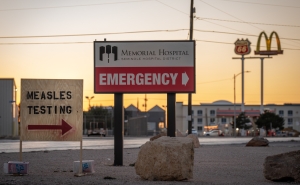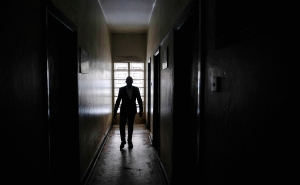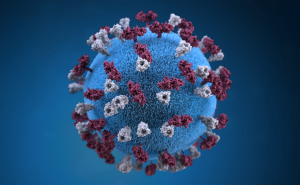COVID-19 Myths vs. Realities
The swiftly moving novel coronavirus continues its relentless spread around the world, upending life as we know it and creating a breeding ground for misinformation. Some rumors are harmless, while others can be dangerous, stoking fear and threatening health. Here, we separate true from false, based on the best science and expertise available.
Myth:
The novel coronavirus is a bioweapon.
Reality:
“At this point, there is no genetic evidence of anything other than a naturally occurring virus. It is true that there is a major laboratory in Wuhan that studies coronaviruses and has a large collection of coronaviruses. But from the analyses that have been done … there isn’t any evidence that this virus has been engineered or is different from something that has been found in nature.” 1
—Tom Inglesby, MD, Director, Johns Hopkins Center for Health Security
Myth:
The coronavirus remains in the throat for 4 days, causing sore throat and coughing before it reaches the lungs. Drinking a lot of water and gargling with warm water and salt or vinegar eliminates the virus.
Reality:
“While it is true that coronavirus can cause a sore throat and gargling with warm water may make it feel better, it has no direct effect on the virus.”
—Amesh Adalja, MD, Senior Scholar, Johns Hopkins Center for Health Security
Myth:
Children are immune to the coronavirus.
Reality:
“We have seen [in a study out of China] that children are being infected in the same distribution as other age groups—they’re just not symptomatic. Unless you were really carefully doing contact tracing, you would miss those kids and might have the impression that kids just aren’t getting infected. It does appear … that kids are getting infected—they just have minimal symptoms. So the good news continues to be that so far no reports have come out saying that kids are getting severe illness in high numbers, but it does appear that kids are getting infected in the same way that other age groups are getting infected.” 1
—Tom Inglesby, MD, Director, Johns Hopkins Center for Health Security
Myth:
You can boost your immune system and lower your risk of getting COVID-19 by eating sweet potatoes and taking certain vitamins and supplements, or taking colloidal silver.
Reality:
“There is no evidence that you can boost your immune system by eating sweet potatoes, taking specific vitamins or supplements, or ingesting silver.”
— Amesh Adalja, MD, Senior Scholar, Johns Hopkins Center for Health Security
Myth:
You can avoid the virus by drinking warm water every 15 minutes.
Reality:
“I’ve seen this kind of meme going around the internet. There’s also a claim that if people drink cold water, their lungs will become fibrotic. I want to stress that there's no evidence at all to support these claims.” 2
— Jennifer Nuzzo, DrPH, SM, Senior Scholar, Johns Hopkins Center for Health Security
Myth:
You can self-treat for COVID-19 by taking chloroquine phosphate, an additive used to clean fish tanks.
Reality:
Although chloroquine and hydroxychloroquine have been mentioned as possible treatments for COVID-19, fish tank cleaning products that contain chloroquine phosphate are not intended for human use. While chloroquine phosphate can be used to treat malaria, it is a dangerous, lethal poison if not used correctly with a physician. Neither hydroxychloroquine or chloroquine have been proven to definitively work for COVID-19. Preliminary data suggest a small benefit but this has to be validated.
David Sullivan, MD, Professor, Johns Hopkins Malaria Research Institute
1. “Tom Inglesby Answers your COVID-19 Questions” March 13, 2020 episode of Public Health on Call, Johns Hopkins Bloomberg School of Public Health
2. “Jennifer Nuzzo Answers Your COVID-19 Questions, Round 2” March, 20, 2020 episode of Public Health on Call, Johns Hopkins Bloomberg School of Public Health





